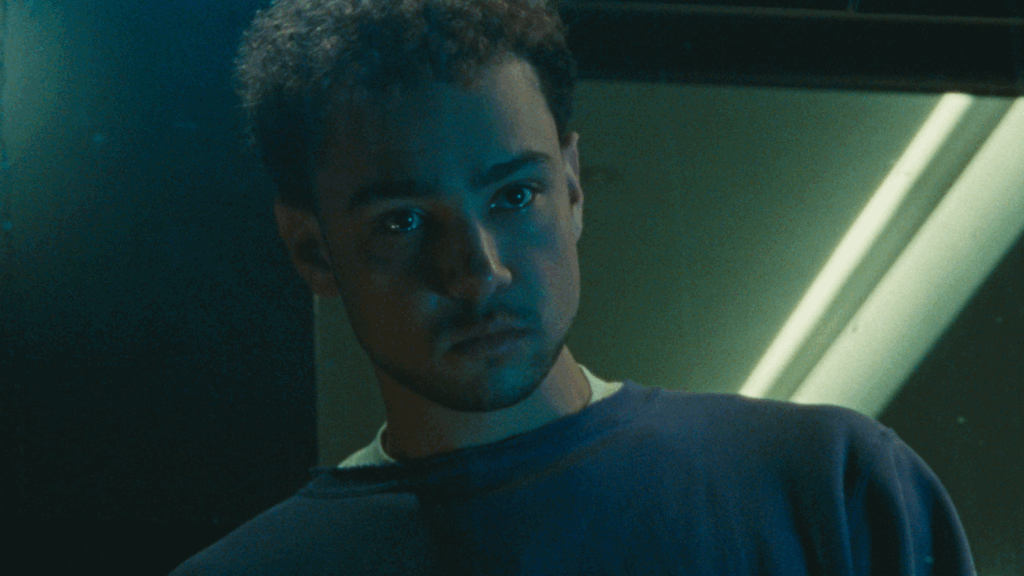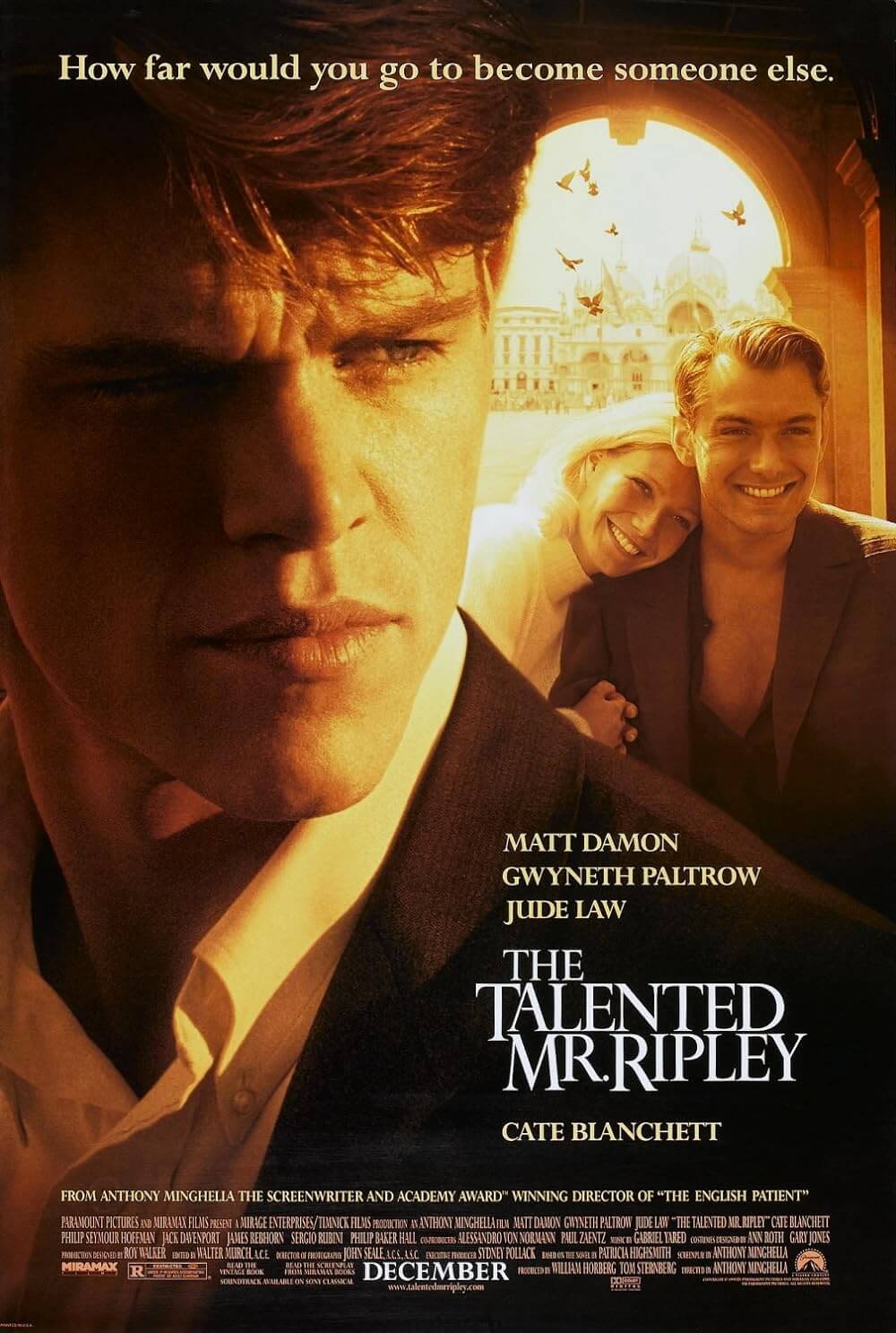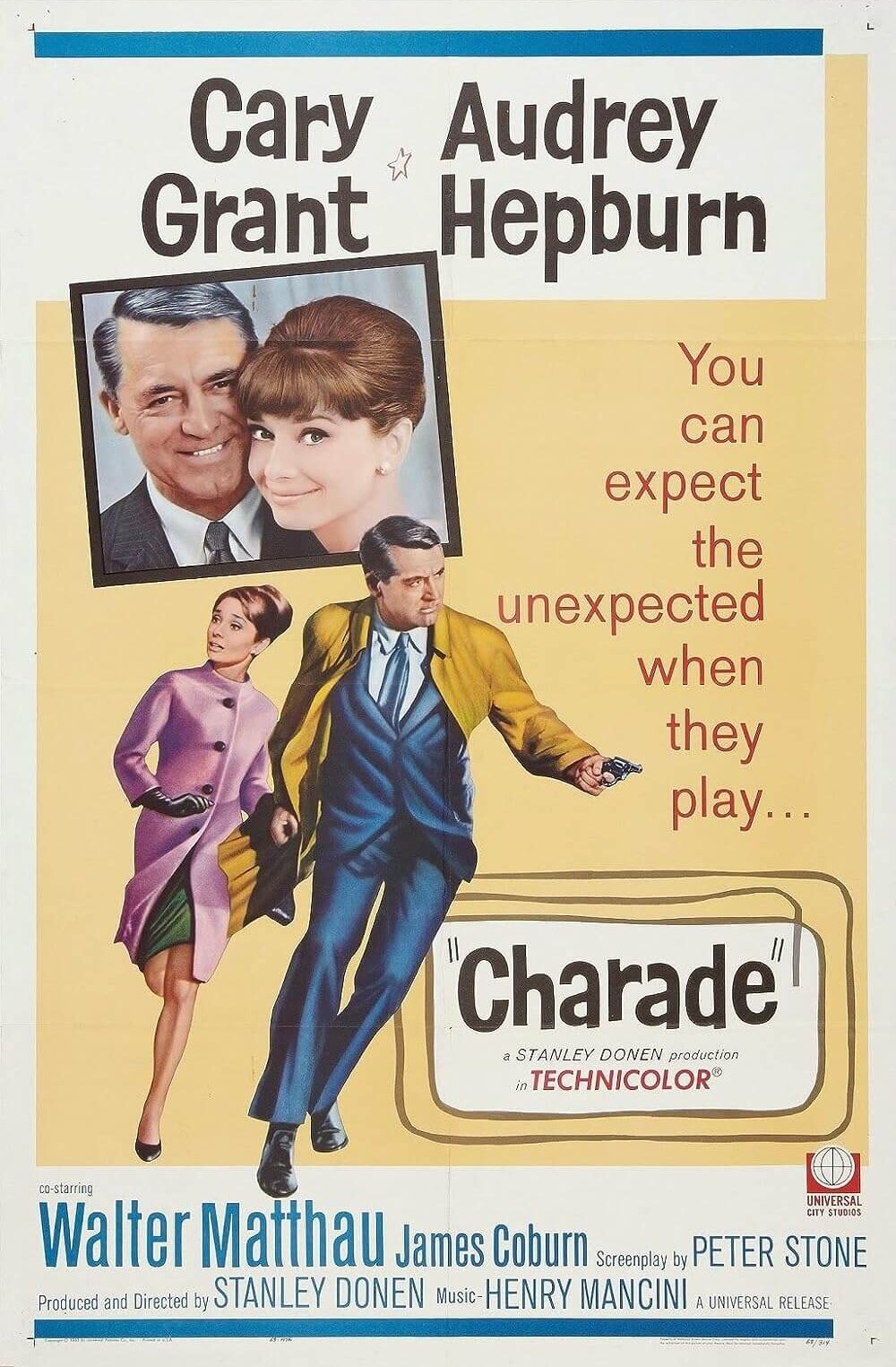
Lurker
By Brian Eggert |
With Emerald Fennell’s Saltburn (2023) and now Alex Russell’s Lurker, we’re living in an age where filmmakers who were moved by Anthony Minghella’s The Talented Mr. Ripley (1999) have created movies that don’t disguise their influence. Except, none of its imitators have the emotional depth or nuance of Minghella’s picture, which departed from author Patricia Highsmith’s original books and remains unique among movies about Tom Ripley. Minghella treats his protagonist not as an insidiously clever villain, but as a sympathetic outsider who navigates a culture—specifically, the hedonistic, intolerant, and immodest upper class—that doesn’t understand or accept him. He must become a shape-shifter, even a killer, if he wants to survive. Russell’s feature applies a similar character to the entertainment industry, exploring a fan who clings to an emerging star like a pilot fish to a shark, only to turn predatory when rejected. Most of the people onscreen prove insufferable in Lurker, a derivative but undeniably engaging thriller about the desperate need to feel included. Yet, it’s a compelling story about the lengths some will go for even a glimmer of the spotlight.
An alternate title for this Mubi release might be Starfuckers, since it involves several people, besides the titular creep, who will degrade themselves to earn and maintain a place in the entourage of wannabe pop-idol Oliver (Archie Madekwe, who also appeared in Saltburn). Lurker marks the directorial debut of Alex Russell, whose credits as a TV writer include Netflix’s Beef (2023) and FX’s The Bear (2022-present). Russell builds a slow-burning thriller—an extended cringe, as my wife and DFR’s editor called it—without sacrificing his characters or narrative integrity for the sake of genre mechanics, such as a violent showdown in the finale. The filmmaker operates in thoroughly explored territory, not unlike Single White Female (1992) and Sissy (2022), which involves stalkerish behaviors and obsession, leading to uncomfortable situations. But Russell’s assured first feature is mostly grounded in reality, omitting the usual genre beats for a less sensational and arguably more relatable experience.
Lurker unfolds around Oliver, who claims to value authenticity and friends who are “real,” even while his own behavior is phony and he surrounds himself with sycophants. Oliver invites Matthew (Théodore Pellerin), a twentysomething clothing store clerk, to visit his home because he knows about musician Nile Rodgers and claims not to be caught up in the pop-music scene. Matthew’s lip quivers after the encounter, suggesting he knows all about Oliver. Although others from Oliver’s crew, such as Shai (Havana Rose Liu), greet newcomers with a smile, some of the others in his court aren’t so welcoming. Swett (Zack Fox) is downright mean to Matthew, putting him through a humiliating hazing process and assigning him domestic duties in Oliver’s house. Eventually, Oliver enlists Matthew to use his consumer-grade home video camera to contribute to a documentary about his rise in the music industry. This doesn’t sit well with his current live-in filmmaker, Noah (Daniel Zolghadri), who calls Matthew his “sous chef.” But Matthew soon schemes to overtake Noah as a video director.

The relationship soon resembles Tom Ripley’s infatuation with Dickie Greenleaf, where Matthew hovers on the periphery and inserts himself into the group, while Oliver’s hot-and-cold affection breeds resentment. However, unlike Tom Ripley, I didn’t root for Matthew, partly because he fails the Save the Cat! test with his kindly grandmother (Myra Turley), whom he lives with and berates when she gets in the way of his path to Oliver. The dynamic escalates when Oliver directs his attention to Matthew’s friend Jamie (Sunny Suljic), whose artistic contributions threaten to overshadow Matthew, prompting Matthew to sabotage him. Everyone wants to appear indispensable to Oliver, and they look at anyone new in their group with suspicion. (And I kept wondering, Are any of these people getting paid?) After all, Oliver’s attention is fickle; he’s quick to declare someone his best friend one minute and forget about them the next. That sort of detachment is characteristic of celebrities, but it’s even more pronounced here because Oliver is not yet a superstar. He’s on the cusp, and everyone around him wants to be there when he explodes.
Lurker was shot on 16mm by cinematographer Pat Scola, capturing the grain and realism of this ersatz world of self-conscious behaviors and personality forgeries. Several scenes are shot with Matthew’s handheld mini-DV camerawork, reflecting the current nostalgia for the early 2000s and those wobbly videos that used to appear online before everyone had 4K cameras in their pockets. Russell also creates convincing-looking music video sequences, including one evocative, excruciating take directed by Matthew, where Oliver must lip-sync while being pelted with paintballs. Another music video sequence involves the absurd idea of putting a camera on a sheep, and it’s funny to watch a group of creatives beaming about the otherwise ridiculous concept. Kenneth Blume (aka Kenny Beats) wrote original music and songs for the movie that echo the generic pop sound prevalent in contemporary music. The presentation is overall intentional and convincing, although occasionally obvious.
Indeed, Russell’s direction can be both subtle and unmistakable. He allows for a nuanced psychosexual undercurrent between Matthew and Oliver that emerges in loaded scenes, such as Matthew’s unwanted pass or a disturbing sequence when they wrestle, which ends with Pellerin delivering a laugh worthy of Joker (2019). But then Russell’s song choices—from Oliver’s “Love and Obsession” to James & Bobby Purify’s 1967 hit “I’m Your Puppet”—feel too on-the-nose when they’re used, especially when the latter song emphasizes how Oliver and company have become Matthew’s puppets. Rather than the music adding a new layer, the songs merely underscore what we already know about the scenes and characters. Even amid such heavy-handed choices, Lurker is effective in holding a mirror up to the entertainment industry, as well as everyday friendships. It’s about people who yearn to break through and become famous, trying to feel accepted and seen within any social circle. In that sense, it’s easy to see why Lurker will resonate with many people who recognize both the clinginess and cruel dismissiveness on display.

Thank You for Supporting Independent Film Criticism
If the work on DFR has added something meaningful to your love of movies, please consider supporting it.
Here are a few ways to show your support: make a one-time donation, join DFR’s Patreon for access to exclusive writing, or show your support in other ways.
Your contribution helps keep this site running independently. However you choose to support the site, please know that it’s appreciated.
Thank you for reading, and for making this work possible.
Brian Eggert | Critic, Founder
Deep Focus Review







